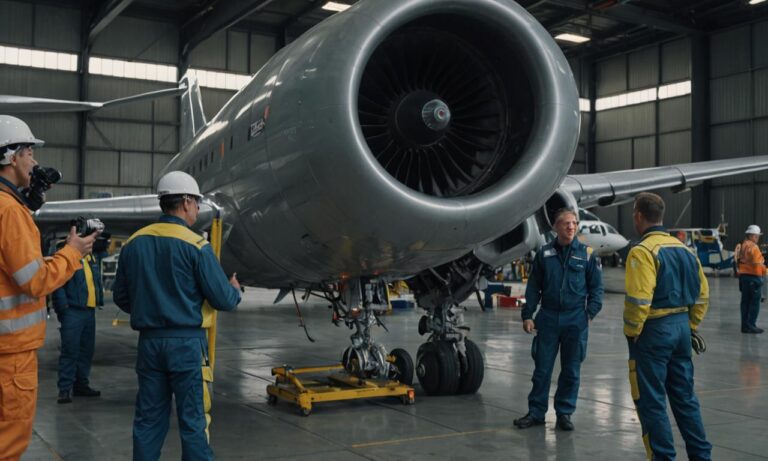If you’re considering a career as an aircraft inspector, one of the essential aspects you might be curious about is the potential income you could earn in this field. Aircraft inspectors play a crucial role in ensuring the safety and airworthiness of aircraft, making their compensation an important factor to consider.
Factors Influencing Aircraft Inspector Salaries
The salary range for aircraft inspectors can vary based on several factors:
- Experience: Experienced inspectors typically command higher salaries compared to entry-level positions.
- Location: Salaries can differ significantly depending on the region or country where the inspector is employed.
- Employer: Aircraft inspectors may work for airlines, maintenance repair organizations (MROs), regulatory agencies, or other aviation-related entities, and the pay structure can vary among these employers.
- Certifications: Holding specific certifications or qualifications, such as an FAA Airframe and Powerplant (A&P) license, can influence salary levels.
Salary Range
While specific salary figures can fluctuate, aircraft inspectors generally earn competitive wages. According to industry data, the median annual salary for aircraft mechanics and service technicians, which includes inspectors, was around $64,090 in the United States as of 2022.
However, it’s important to note that this figure can vary based on the factors mentioned earlier. Experienced inspectors in high-demand locations or specialized sectors of the aviation industry may earn salaries above the median range.
Job Outlook
The job outlook for aircraft inspectors is generally positive, with steady demand expected due to ongoing aircraft maintenance needs and regulatory requirements. As air travel continues to grow globally, there will be an increasing need for qualified inspectors to ensure the safety and airworthiness of aircraft.
In summary, aircraft inspectors play a vital role in maintaining the safety and integrity of the aviation industry. While salaries can vary based on factors such as experience, location, employer, and certifications, the overall compensation for this profession is competitive. With a positive job outlook and opportunities for advancement, a career as an aircraft inspector can be rewarding both professionally and financially.
Frequently Asked Questions
Here are some common questions related to aircraft inspector salaries:
| Question | Answer |
|---|---|
| 1. Are there opportunities for career advancement as an aircraft inspector? | Yes, there are opportunities for career advancement in this field. Experienced inspectors can move into supervisory or management roles, or specialize in specific areas such as avionics or quality control. |
| 2. Do aircraft inspectors receive any additional benefits besides their salary? | Many employers offer additional benefits such as health insurance, retirement plans, and travel perks. The specific benefits may vary depending on the employer. |
| 3. Is there a high demand for aircraft inspectors in specific regions? | Yes, certain regions with heavy aviation activity or specialized aviation sectors may have a higher demand for aircraft inspectors. This can impact salary levels and job opportunities. |
| 4. Can aircraft inspectors work remotely? | While some aspects of the job may allow for remote work, such as administrative tasks or documentation review, the hands-on inspection of aircraft typically requires physical presence at maintenance facilities or airports. |
Additional Factors to Consider
Aside from the primary factors influencing aircraft inspector salaries, there are some additional considerations:
- Industry Trends: Keeping abreast of industry trends and technological advancements can enhance job prospects and earning potential.
- Continuing Education: Pursuing additional certifications or continuing education courses can increase qualifications and potentially lead to higher-paying opportunities.
- Networking: Building a professional network within the aviation industry can open doors to new career opportunities and salary negotiations.






